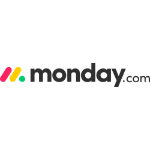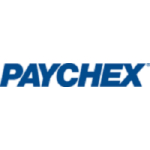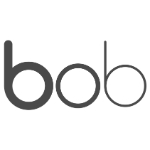This article examines how AI HR software is transforming workforce management in 2025, covering everything from forecasting and compliance to hiring and engagement. Whether youre a business strategist, tech enthusiast, or HR executive, youll learn how to use AI to make HR procedures more intelligent, efficient, and human-centered.
The increasing impact of AI-based HR software is causing a seismic upheaval in labor management in 2025. In a world that is changing quickly, human resources once thought of as a back-office function is now at the strategic core of corporate operations, promoting performance, agility, and retention.
As businesses struggle with hybrid workplaces, international talent recruitment, and growing employee demands, AI in HRMS has emerged as a critical enabler of intelligent, data-driven decision-making.
AI-driven HR software refers to software applications that use artificial intelligence (AI) tools, such as machine learning, natural language processing (NLP), predictive analytics, and conversational AI, to improve and expedite HR tasks.
Unlike traditional HRMS systems that rely on static data and human operations, AI-based HR software provides dynamic, learning-based solutions.
Deeper employee insights, intelligent automation, and real-time decision-making are made possible by these systems' constant adaptation to new data.
Machine Learning Algorithms: To identify trends in performance, attrition, or hiring success.
NLP and chatbots: To support virtual assistants that respond to leave requests, benefits questions, and frequently asked questions.
Predictive analytics: To estimate skill shortages, hiring requirements, and employee attrition risks.
The transition from traditional to AI-powered HRMS is a workforce management revolution rather than merely an improvement.
Workforce dynamics have changed, remote work, distributed teams and gig economy participation is the new norm. This complexity requires a new level of responsiveness and intelligence from HR departments.
As businesses strive for agility and smarter people operations, many are turning to advanced workforce optimization software powered by AI to meet evolving demands.
In 2025 organisations are turning to AI HR software because:
Agility is non-negotiable: Businesses need to pivot and scale without lag.
Personalisation is expected: Employees want tailored experiences from onboarding to career development.
Data driven decisions reduce risk: Gut feel management is giving way to evidence based HR strategies.
Real time AI powered systems aren’t just nice to have – they’re necessary to meet the workforce demands of today and tomorrow.
Here’s what leading AI based HR software platforms are offering in 2025:
Smart Recruitment: AI filters resumes, matches candidates and even schedules interviews automatically.
Predictive Analytics: Tools forecast attrition risks, identify high potential employees and optimise headcount.
AI Chatbots: Always on support assistants handle HR queries and boost employee satisfaction.
Onboarding Automation: Intelligent workflows create seamless, personalised onboarding journeys.
Learning & Development: AI recommends learning paths based on skill gaps and career goals.
Real Time Performance Management: Continuous feedback and AI coached improvements replace annual reviews.
These features make HR operations not only more efficient but more strategic.
1. Talent Acquisition Automation: Talent Acquisition Automation using AI reduces time-to-hire by 50% by automating sourcing, screening and communication so recruiters can focus on relationship building.
2. Sentiment Analysis for Engagement: Machine learning models read employee emails, surveys and chats to gauge morale and detect dissatisfaction before it escalates.
3. Workforce Planning & Forecasting: Predictive algorithms use historical data and external market trends to model workforce needs so HR can prepare for the future.
4. DEI Monitoring: AI tools detect unconscious bias in job descriptions, promotion decisions and performance evaluations to advance diversity and inclusion.
While the benefits are compelling, implementing AI comes with responsibilities:
Efficiency Gains: Automate the mundane so HR can focus on the important stuff.
Enhanced Employee Experience: Personalised, proactive HR means better engagement and retention.
Compliance Confidence: AI flags risks, ensures compliance and maintains audit trails.
Cost Optimisation: From hiring to benefits management, AI reduces overhead and improves ROI.
Smarter Strategy: AI gives you the insights to plan your workforce and make informed decisions.
Though the advantages are strong, responsibility accompanies the implementation of AI:
Data Privacy: HR data is very sensitive in nature. Firms have to maintain strong data governance and transparency.
Algorithmic Fairness: The fairness of AI algorithms is only as good as the data used to train them. Auditing is essential to reduce bias.
Change Management: Implementing legacy systems necessitates stakeholder buy-in, retraining, and cultural adaptation.
Human-Centered Balance: Empathy and human judgment cannot be replaced by automation in HR interactions.
Organizations must navigate these challenges thoughtfully to unlock AI's full potential.
Top corporations are already establishing standards in integrating AI into HR:
Workday employs AI to provide predictive talent analytics and internal mobility insights.
Darwinbox integrates artificial intelligence-driven workflows with voice-based employee self-service.
SAP SuccessFactors incorporates goal tracking, feedback loops, and DEI auditing with AI.
One global tech company using AI HR solutions saw 25% less turnover in only six months—indicative of the strategic value of such solutions.
If you're evaluating AI-driven HR solutions, consider this checklist:
Core capabilities of AI: predictive analytics, NLP, sentiment analysis
Seamless integrations: With payroll, benefits, ERP, and collaboration tools
Vendor transparency: Ethical use of AI, bias reduction, data handling policies
Scalable architecture: Cloud-first design to ensure future scalability
Customization: Configurable Workflows and Employee-Focused Interfaces
Choosing the appropriate AI based HR software guarantees long-term success and business goal correspondence.
The future promises even greater innovation:
Autonomous HR Systems: End-to-end HR operations executing with little human intervention.
Emotion AI: Identifying states of emotion in real time to personalize communication and care
Metaverse Onboarding: Virtual, immersive experiences for new hire orientation, team-building, and more
As capabilities increase, HR leaders' roles are going to change from being administrators to being strategists, prioritizing cultivating culture, fostering engagement, and managing the relationship between humans and AI.
AI is not only revolutionizing HR, it’s reinventing it. From smart hiring to future-proof workforce planning, AI HR software in 2025 enables organizations to be more competitive, nimble, and people-focused than ever before. Although challenges exist, the benefits of adopting AI in HRMS greatly outweigh the risks.
Now is the moment to act. Investigate your choices, determine your level of readiness, and advance toward an AI-fueled, future-proof HR approach.
Ready to see the future of HR? Get in touch with us to schedule a customized demo of the latest AI-powered HR software.

Subscribe & get all related Blog notification.
Easily find the ideal software for your business with our extensive software database.
Explore Software




Post your comment